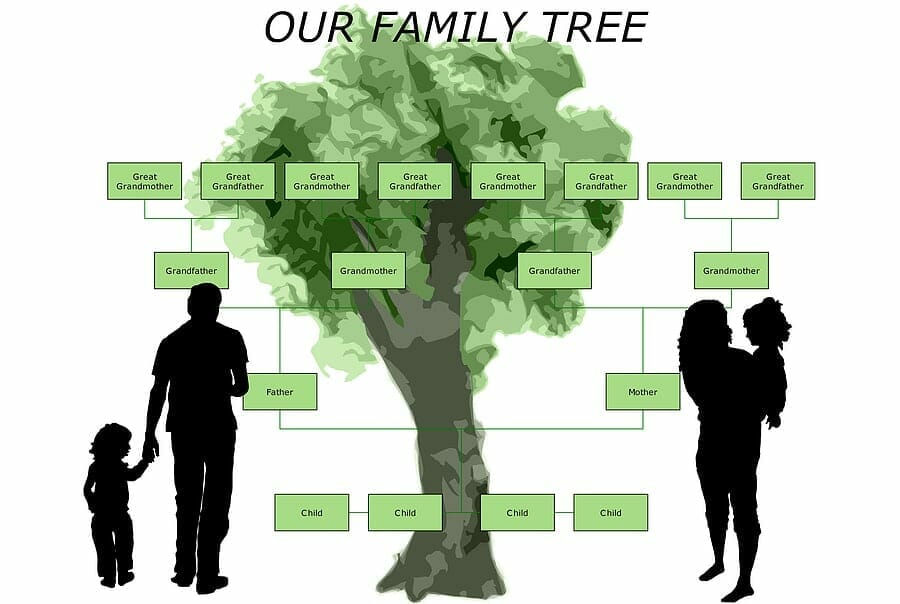Have you ever wondered who your ancestors were and what life was like for them? Researching family history has become a very popular hobby for many, especially now archives are accessible online and with TV shows such as ‘Who Do You Think You Are’.

Or perhaps your interest has been piqued to your family history after discovering a previously unknown fact, or as in the case here reported by The Sun, where a woman discovered a long-lost family after her grandfather’s First World War medals were gifted to her by a stranger.
Whatever your reasons for delving into your family’s history, many people catalogue their findings into a family history book that the whole family can see and enjoy. We have some tips to help get you started on your genealogy journey.
1. Work backwards in time
It is simpler to work methodically from easily found facts, such as dates of birth or the marriage of a relative than it is to try and track down information about someone you know little about.
2. Ask the family
Ask other relatives what they remember about their families. Always make a note of any nicknames or name changes. Ask for any family stories, what their ancestors did for a living, or what they looked like. See if they have any photos, letters or documents relating to your ancestors.
3. Take notes
Keep notes that you can refer to, as you never know when information you have revealed will help with other areas of research.
4. Check out the Web
There are now many useful tools, apps and websites that can help with contacting distant relatives and digging up information. A good place to start is with the Society of Genealogist website, which has useful free information leaflets with guides to starting your family history and links to useful websites http://www.sog.org.uk/leaflets/starting.pdf.
5. Meet other family historians
There is a network of local societies where other family historians hold meetings to help each other out. You can meet like-minded people with similar interests and local experts who may be able to give you pointers and tips you might not have considered.
6. What’s been done before?
It is worth checking to see if anyone has researched your family previously before you start. The Society of Genealogists library collects published and unpublished family histories and research notes. Its free library catalogue can be found on the library pages of this website which also list the surnames names in its various collections.
7. Get some documentary evidence
There will be a myriad of records and sources throughout history in which your relatives and ancestors may be mentioned
From birth, marriage and death records, censuses 1841-1911, wills, church records occupational records, education and apprenticeship, military service records, tax records, criminal records, poor law, newspapers, trade directories, ecclesiastical licences, church records, and more, they might help provide some valuable information.
8. Stay focussed
With all the information at your fingertips, it is easy to get overwhelmed. Keep a clear idea of what you are looking for, and why you started the search in the first place. Family history is a fun and absorbing hobby, akin to being a detective and saving puzzles and collecting clues.
If you’re looking for family history books printing in the UK, visit our website today, and good hunting!
Looking for a reliable printing company?
Get an instant quote